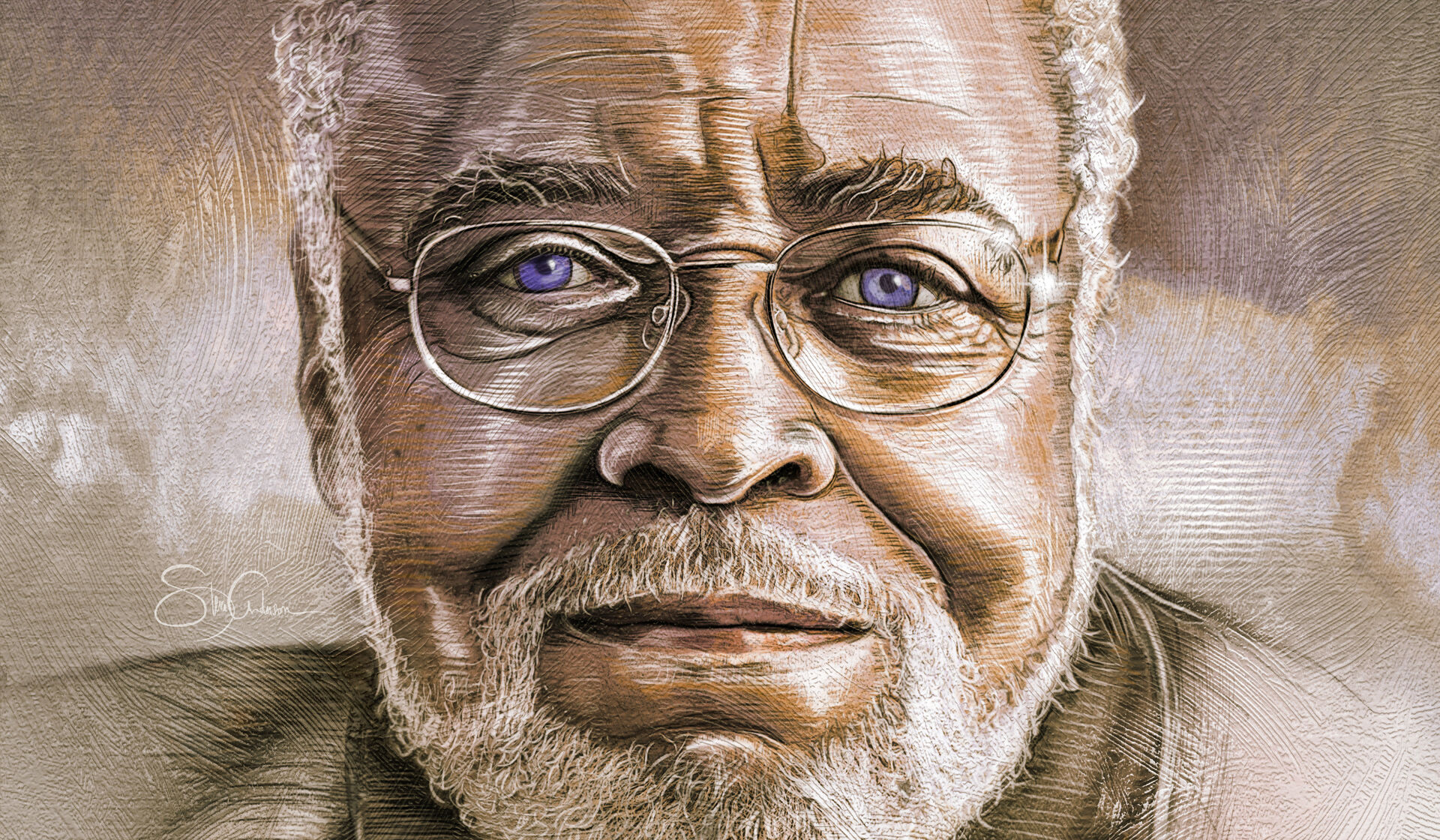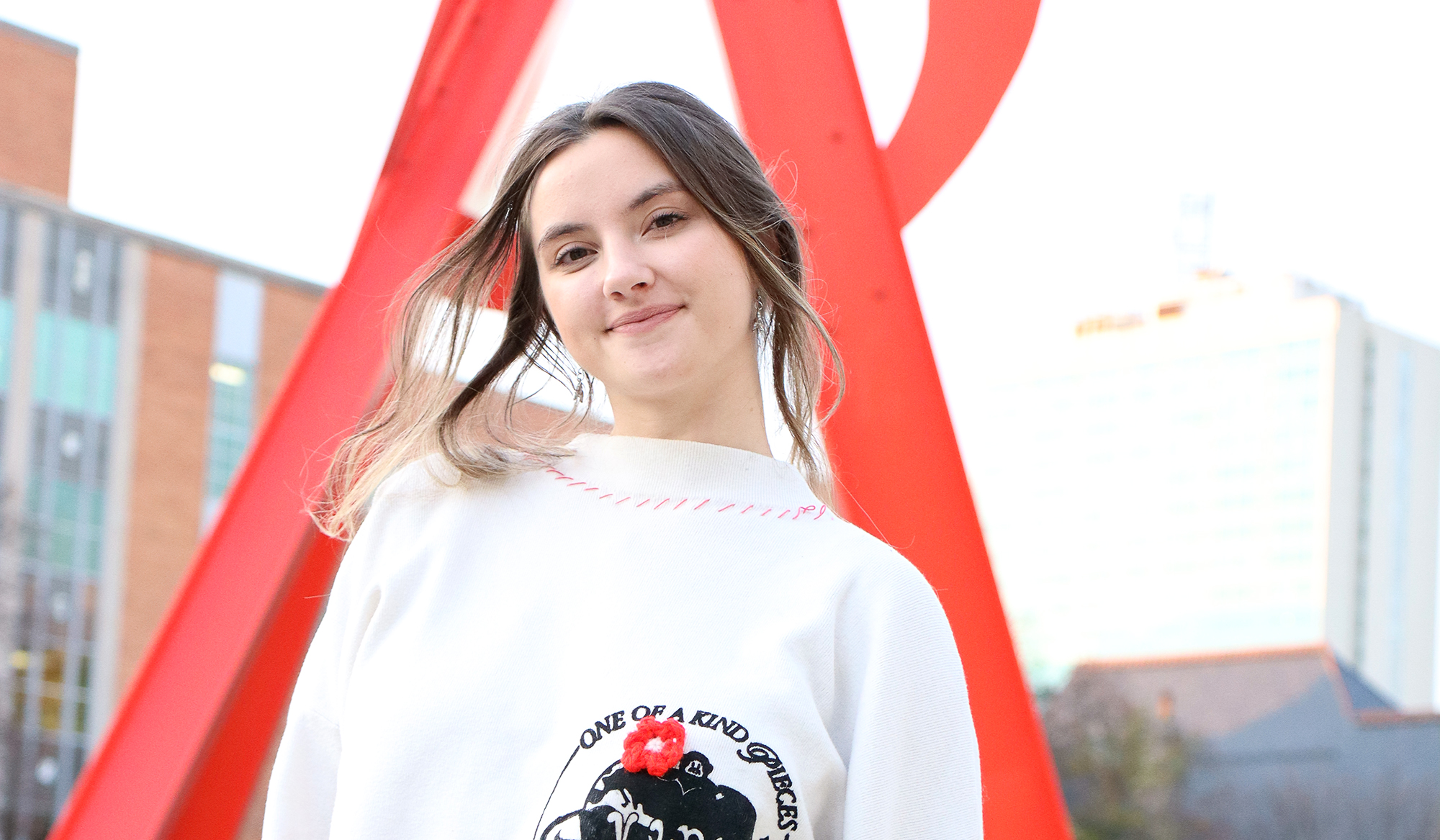Answering the Call
•
Illustration by Corrine Lenz
As the U.S. military began to conclude operations in Afghanistan in August 2021 and the Taliban rapidly took control of the country, thousands of Afghans attempted to flee.
Many were trying to escape because they had supported the U.S. through intelligence or interpretation and feared retaliation.
Back in the U.S., local resettlement agencies began to ask for volunteers to host the expected influx of refugees.
Jules Pieri, ’82, and her partner, Drew, answered the call, volunteering their 2,300-square-foot, three-bedroom condo in Boston to a young married couple in their 20s. Pieri says they felt compelled to help during the humanitarian crisis in the aftermath of the American military’s departure.
“While we had no personal connection to the country, we felt that as U.S. citizens, we had a duty to help the Afghan people whose lives were now at risk simply because they had worked for or with U.S. entities such as the military,” she says.
When the Afghan couple arrived, their caseworker initially told Pieri and her partner that it would only be for two nights. But Pieri says she knew it would likely be longer and that she was about to embark on a journey with their new houseguests.
The Afghan couple agreed to allow Pieri to share their story to raise awareness about supporting refugees in the U.S. However, their identities have been withheld here for safety reasons.
Pieri, an entrepreneur and former Alumni Association of the University of Michigan board member, says that when the couple first arrived, they were quiet, polite, respectful, and clearly scared.
“I was pretty nervous when I met them. I wanted to be a good host,” she says. “I had just a basic level of awareness about Islam, and I didn’t know the first thing about how to behave in terms of being respectful to their culture. They both looked terrified and exhausted. I didn’t know all the details of what was behind their fatigue and wariness, but I wanted to help in any way I could.”
At first, the language barrier alone presented a challenge.
“Everything happening was nonverbal and we were trying to intuit their new needs,”Pieri says. “We immediately began to teach them a bit of English and lessons about American culture and daily living in the U.S. But it quickly became evident that their needs were so much more complex.”
Pieri was also keenly aware that the couple was dealing with a lot of trauma and fear. The husband was an English interpreter for the military and when the Taliban began to seize the country, their lives were in danger. They had to uproot quickly and forced their way onto a transport plane to flee the country. But they were reluctant to leave behind everything familiar in Afghanistan.
“I was always on alert for any way to make things easier for them,” Pieri says. “They would sleep with the light on because the dark scared them. So, I got them a nightlight. They arrived with two blankets and three changes of clothes and some documents in a plastic bag. That was it. And it was soon going to be freezing in Boston. So right away I was online getting them warm coats. I stayed up late when they would call their families in the middle of the night because they often needed support after learning upsetting news.”
Pieri set up her guest room and a small sitting area so the couple could have privacy. But because they were used to a communal living experience in their home country, the couple spent most of their time with Pieri and Drew in common spaces of the condo.
“Immediately, from the start, we had every meal together,” she says. Dinner is where the friendship with the couple really blossomed. “That’s when we would try to learn about them, sort through the language barrier, help them through their trauma and bad news from home and try to make them laugh.”
Once the couple’s needs were evident, Pieri and her partner pledged to house them for as long as they needed, to help them acclimate and lay the groundwork for a new life in the U.S. With a refugee status called humanitarian parole, the couple received some benefits to help them get on their feet and were entitled to a work permit and a Social Security number. Pieri helped facilitate a lot of those elements.
But with very little government aide available, she also sourced English classes, jobs, and raised money for clothes and schooling so they could transition into their own apartment.
“I set aside much of my life to help them,” she explains seven months later. “Time wasn’t the first thing I thought I’d be giving, but it is the most important thing I have and what I continue to willingly give the most of.”
Pieri has learned a lot as a host too.
“In America, we are so used to this heroic immigration story, but there’s a really big difference between immigrants and refugees,” she says. “They had no intention of leaving Afghanistan. No desire. Their families and everyone they love are there.”
After three months, when the Afghan couple was ready for more independence, Pieri helped them find an affordable apartment nearby. She co-signed for the lease and collected donations to help furnish the apartment.
“Just a few months ago they thought living alone would be sad and lonely but now they’re starting to enjoy the freedom of having their own apartment,” Pieri says. “They have a future. They didn’t want this future. Let’s be clear: they had no ambition to move to the U.S. But they’re finding their way.”
Pieri and her partner still see the couple every week— more than she sees her two local sons.
“Every birthday, holiday, everything—they’re there,” she says. “This is permanent. We’re part of each other’s families now.”
 For more on this story, check out Season 2, Episode 4 of the Voices of Victors podcast. The episode explores refugee resettlement efforts with expert insight from Dr. Odessa Gonzalez Benson, assistant professor at the University of Michigan School of Social Work, along with more from Jules Pieri, ’82.
For more on this story, check out Season 2, Episode 4 of the Voices of Victors podcast. The episode explores refugee resettlement efforts with expert insight from Dr. Odessa Gonzalez Benson, assistant professor at the University of Michigan School of Social Work, along with more from Jules Pieri, ’82.
JENNIFER DAVIS, ’95, is a writer and executive coach who runs her own communications and content company, Jennifer Davis Media Group, based in Washington, D.C.
Editor’s Note: This article originally referred to the Afgan couple as “Afghani,” which is the incorrect term to refer to people from Afghanistan. The article has been updated to correct this error.



